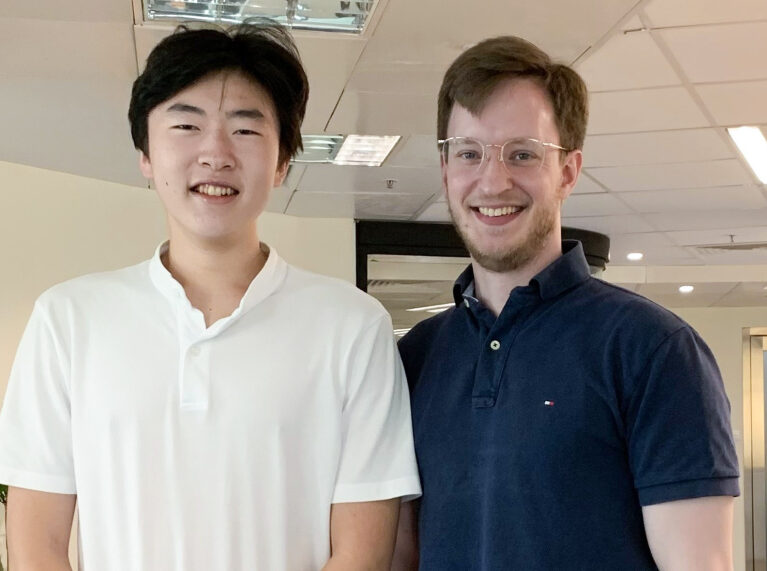JEROME BARTY-TAYLOR of BartyED tutoring in Hong Kong shares some insights around the International Baccalaureate Diploma Programme (or IB Diploma Programme). Plus, hear his tips and strategies that might be useful for families considering this challenging curriculum option and the IBDP exams.
For those with children who might still be a few years away from it, what does the IB Diploma Programme involve: how long, how many subjects, what level?
The IBDP is a broad and intellectually rigorous two-year leaving certificate programme designed for students aged 17 to 19. Students take six subjects, three at standard level (SL) and three at higher level (HL). Students must take English, Maths, a second language, a humanities and a science subject.
Because students often start the IBDP younger in Hong Kong, especially if families have switched between different school systems, students can find themselves preparing for their final exams at the age of 17. This presents an additional challenge, as they may not yet have developed the maturity and self-management skills required to effectively prepare for such a demanding programme.
How many schools in Hong Kong offer the IBDP exams? How do overseas universities view the programme?
In the past 15 years, the vast majority of international schools have switched over to IB Diploma. It’s now the default option for many schools, with only three major international schools continuing to offer the GCE A-Level qualification. Meanwhile, HKIS, along with a small number of other schools, provides the US High School Curriculum.
What are three words that reflect the kind of character or approach required by a student to successfully tackle the IBDP?
#1 “Self-starter”
The IBDP rewards students who have a clear vision of their goals and consistently take initiative from the very beginning of the programme, proactively consolidating their learning throughout the first year.
#2 “Perseverance”
The IBDP demands perseverance and resilience from students throughout their studies. While a few students may appear to excel effortlessly, most will have to consistently invest time and effort to achieve. For students studying challenging subjects like HL Maths, Experimental Sciences or English, it can feel frustrating or discouraging to repeatedly hear they’re “not quite there yet”. However, determination and persistence in the face of these challenges are precisely what transform those 5s and 6s into 7s.
#3 “Enjoyment”
This one is often overlooked in Hong Kong. Taking so many subjects in Grade 11 and 12 becomes significantly easier and less stressful when students genuinely enjoy at least some of them. Too often students in HK end up taking the IBDP for lack of other options at international schools and end up taking classes they don’t enjoy. This can add a lot of unnecessary stress to your final two years of school. If you’re someone who enjoys English, Humanities and Science equally, then the IBDP can be a deeply enjoyable and rewarding experience.
What do the acronyms EE, TOK and IA refer to?
The bête noire of all IBDP students: the Extended Essay, Theory of Knowledge and Internal Assessment(s).
All students must complete an Extended Essay of 4,000 words and the compulsory epistemology course Theory of Knowledge. Their assessment in these elements nets them up to three core points in addition to the 42 points available from their other subjects.
Performance in these two elements has been steadily dropping over the past few cycles and the IBO is not sure why; as someone who used to examine TOK and has coached IBDP students for the past 12 years, I’d attribute this to a steady decline in age-appropriate academic skills. While it might be an unpopular opinion, I see a clear correlation between greater reliance on technology in assessment and marking and a deterioration in students’ writing skills.
This latter point feeds into Internal Assessments, which are internally assessed coursework that students complete in each of their subjects. These are worth on average between 20 and 25 percent of students’ grade in each subject so performing strongly in them is essential for students who want to score highly. Being a self-starter in the IBDP means putting in the time in Year 1 to bank as close to 100 percent of 25 percent of available marks as total; this calculus will be the difference between a 6 and a 7 when it comes to final exam day at the end of Year 2.
What are some easy IBDP hacks you can share?
Making use of the opening and middle summer is crucial for all IBDP students who want to succeed. For students about to enter the programme, using the first summer to pre-read the reading list for English is essential. This was common practice at top IBDP schools historically, but seems to have fallen into abeyance in recent years.
The initial summer is also a great time to revise key areas of Mathematics that may need to be consolidated before starting the demands of the Analysis and Approaches SL/HL course. For students planning to take a language ab initio – that is, with no prior experience – it’s also time to hit an introductory course at HKU Space or download Duolingo! The middle summer is an essential time for completing the Extended Essay, Internal Assessments as well as consolidating content from Year 1.
How does BartyED tutoring in Hong Kong help students doing the IBDP?
In addition to individualised subject tuition and support with EEs and IAs throughout the year, BartyED offers tailored Bridging Programmes, for students moving into IBDP Year 1 as well as Acceleration Programmes for the middle summer to help students take appropriate steps in their revision and planning.
We have an excellent track record of helping students get 45 on IBDP, especially when working with students who are targeting competitive offers for Oxford, Cambridge and HKU Med. Around 15 to 20 percent of HK’s perfect scorers each year are BartyED students – we’d love to work with more.
What are some benefits of the IB Diploma Programme? How does it prepare students for university?
Students who completed the IB Diploma often report finding themselves more ready for tertiary study than peers who did not. In STEM and Humanities subjects, there may be a range of material in 101 courses at university which is basically revision. IB Diploma graduates find themselves able to think critically and apply their understanding effectively, whether evaluating research design using the scientific method, or breaking down arguments across multiple sources to synthesise a college-level essay assignment.
IB Diploma Fact File
- The IBDP was established in 1968 to provide students with a balanced education, facilitate geographic and cultural mobility and promote international understanding.
- It was created by teachers at the International School of Geneva, with assistance from other international schools.
- As of September 2023, it’s offered at 3,686 schools in 155 countries around the world.
A word from an IB Diploma student
Name: Traven Ng
School: Diocesan Boys’ School
IBDP Score: 45
Congratulations on your brilliant achievement in the IBDP exams! How did you feel when you heard your result?
Although I was confident in my abilities, I had suddenly fallen ill during the exam period; as a result, I believed that I performed terribly, especially in English as I couldn’t put a hundred percent effort into revision.
On the day before the release of the IBDP exam results, I went out to dinner with a few friends who also took the IB to distract ourselves from the stress and anxiety. We all knew that the top scorers of 44 and 45 would get a call that night, so we could all feel the tension in the room while trying to have fun.
During the dinner, my coordinator gave me a call telling me I got a 45. I was too stunned to speak at first, but then I was over the moon hearing the news. I immediately felt the stress and anxiety leaving my body and felt confident in preparing for the press conference my school had for top scorers the next day.
Did you have any special routines when preparing for your IBDP exams?
During my first year, I didn’t realise the sheer amount of coursework I would get, leading to me procrastinating and managing my time poorly. However, as I slowly developed into a full-fledged IB learner, I started cultivating good learning habits, including critical thinking and proper time management.
In preparation for my final IB exam, I gathered the lessons I learnt along the way and did my best not to repeat the same mistakes from my first year. I made to-do lists for every day and revision schedules, and placed little post-it notes around my room to remind myself to focus.
In terms of revision, I started by going over concepts I was unfamiliar with, especially in the science subjects. Then, I focused on doing as many past papers as possible as it is a valuable way of testing your knowledge and familiarising yourself with the style of questions in IB. I would go over the mistakes I made before the exam so that I didn’t repeat the same mistakes.
How did BartyED help with your preparation?
I sought help from BartyED for my IB English HL Essay with only two days left until the final deadline. (Poor time management, I know!) Not only were they willing to help even with those time constraints, but they also assigned a very patient and helpful IB tutor. It went from being a disorganised mess to a coherent and persuasive essay in just a few days. and I achieved a 7 on my final exam.
Keen for your child to get some additional educational support this year? Find out more about the tutoring in Hong Kong and other programmes at bartyed.com or call 2882 1017.
Our interview with Jerome about the IBDP first appeared in the June 2025 edition of Expat Living. You can purchase the latest issue or subscribe so you never miss a copy!



